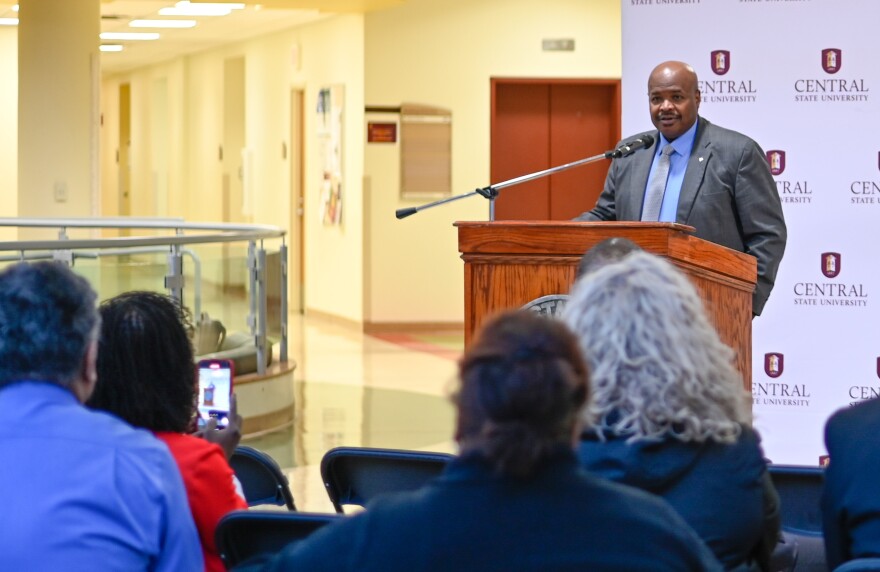The U.S. Department of Agriculture will partner with Central State University, Ohio’s only HBCU land grant institution, to train underserved rural and urban farmers.
The nearly $5 million project is part of a $325 million investment in 71 projects across the country through the USDA’s partnership for Climate-Smart Agriculture Commodities.
Through the partnership — which also includes the Southeast Michigan Producers Association, a group of Black farmers — more than 50 historically underserved farmers in Ohio will receive training on how to farm in a way that reduces carbon emissions in an industry that produces about 11% of greenhouse gases.
Terry Cosby, USDA’s Natural Resources Conservation Service Chief, explains.
“When you start talking about practices, you start talking about no till farming, and you start talking about cover crops, you talk about nutrient management,” Cosby said. “When you add up all the benefits from all of these, we have the solution to a lot of our climate crisis problems.”
Ohio’s concentrated animal feeding facilities, or feedlots, produce tons of manure. Typically that manure is stored on site in a manure lagoon. It can also be hauled and applied as a nutrient to crop fields.
This specific project with Central State will recruit minority farmers to train them on how to apply manure nutrients, such as phosphorus and nitrogen, from a local feed lot to their growing operations — which would reduce the reliance on chemical fertilizers.
Jack Thomas, Central State’s president, praised USDA’s effort to connect underserved farmers with resources they’ve historically been excluded from.
“Though climate smart agriculture, research and outreach is at the forefront of the USDA’s priorities. The unfortunate fact is that socially disadvantaged farmers are frequently the last adopters of advanced technologies,” Thomas said. “This project provides opportunities for CSU students to become more engaged in agriculture.”
Farmers participating in a climate-smart initiative can grow and produce vegetables that can then be sold with a climate smart label on it, which means more money for the farmer.
Cosby said the partnership comes at a time he believes farmers can get involved and be part of the solution to address climate change.
"When you combine all this together. Agriculture can solve a lot of this." Cosby said. "It's been portrayed that agriculture is the problem. It's not. It's only a small amount of the emissions from agriculture when you look at the whole but we got to do our part and that's what we're trying to do here."
Alejandro Figueroa is a corps member with Report for America, a national service program that places journalists into local newsrooms.



